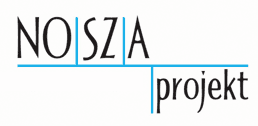
Planning for Sustainable Legal Environment:
Promotion of Participatory Democracy in Hungary
2004 - 2007
The mission of NOSZA is a guide for us to formulate our long-term strategy, which is ”to create a legal environment that ensures the continued development of the Hungarian non-profit sector” and ”to create a network of non-profit sector actors who can communicate amongst themselves and with the state as well in order to ensure the smooth functioning and general utility of the governing apparatus affecting the sector”.
Thus, we will continue to promote legal changes which help the third sector's long-term sustainability. Also, we consider communication development a key function to improve the capacity of the sector to advocate for its own interests.
We strongly believe that a supportive legal environment and a correlated third sector are the pillars for sustainability of a strong third sector, and thus for stable democracy in Hungary.
As we see it, participatory democracy is fulfilled if the state operations and decisions are based not only on the constituency of general and local elections, but on public participation, too. In this sense the concept of participation is also the process and the attitude, which is needed.
In order that this concept is used in practice, we identified the following key points:
-
cooperating public bodies (state, local government, other institutions)
-
strong civil society, with the ability to talk for itself,
-
the interface, where the actors establish contact and communicate, and
-
a supporting legal environment establishing the rules of participation.
Maybe it sounds not obvious, but the biggest challenge to a working democracy is the attitude of the participants, especially the attitude of those possessing the power. Even if there is no other barrier, and all other fundamentals are given, the lack of supportive attitude of individuals can hinder the whole participatory process.
Second, the ability of citizens and NGOs to raise their voice is crucial. If the third sector is weak, and the CSOs are struggling to find resources for their operations or they are dependent on state funding, they will not be able to talk for their own interests and advocate for themselves or for those whom they represent or defend.
The actors of this process are the public authorities on the one hand, and civil society organizations, citizens on the other hand. The possibilities of interaction between these actors are very broad: interaction is traditionally managed either in meetings (personal or event) or in writing (letter, fax, or nowadays e-mail). It is important that the internet technologies are available and utilized by CSOs, as this can result in better and advanced communication.
Also, an important factor in the concept is an enabling legal environment: laws and regulations that are rather in favor of participatory processes (establishing methods and procedures, etc) than for restrictions (data protection, secret laws, etc).
Development of participatory democracy, thus, means
-
capacity building: actors (authorities, NGOs, citizens) are trained and informed on the importance and the tools of participation,
-
management training and network building: NGOs are well organized and capable of defending their rights,
-
modern technology: cost-effective and accessible information provision and consultation processes beside traditional ways of communication, and
-
laws of participatory rights: such as the Aarhus convention for environmental processes.
